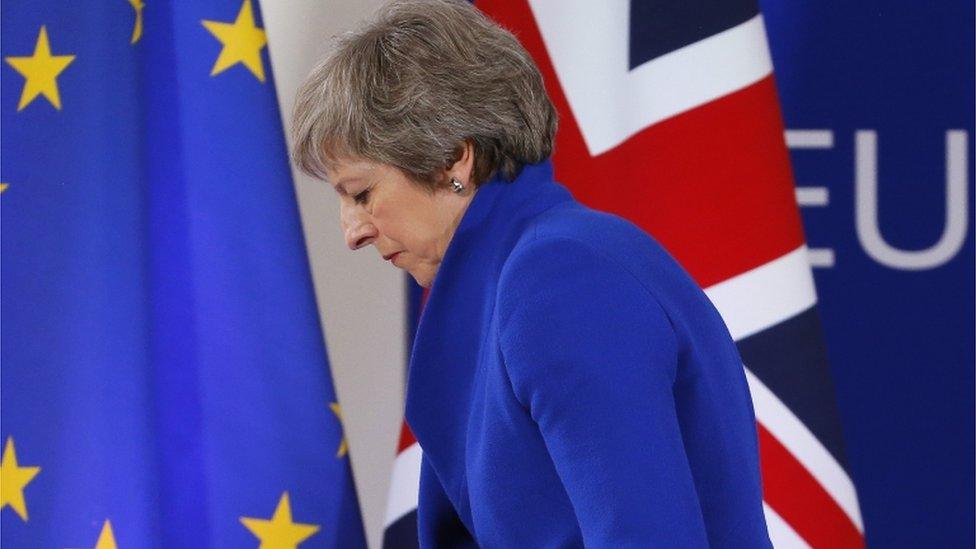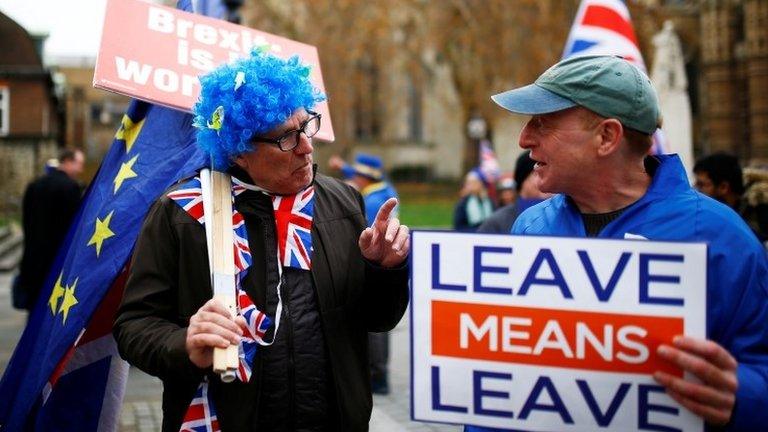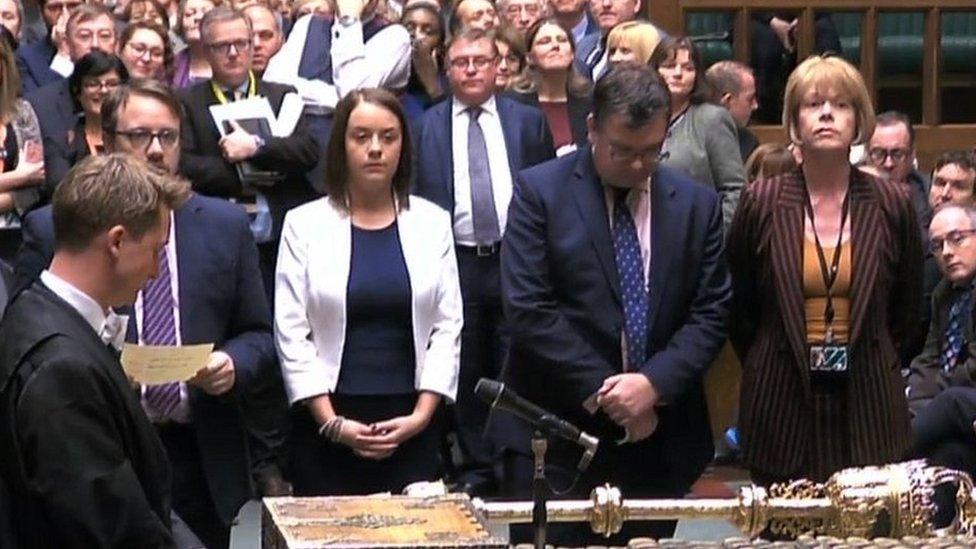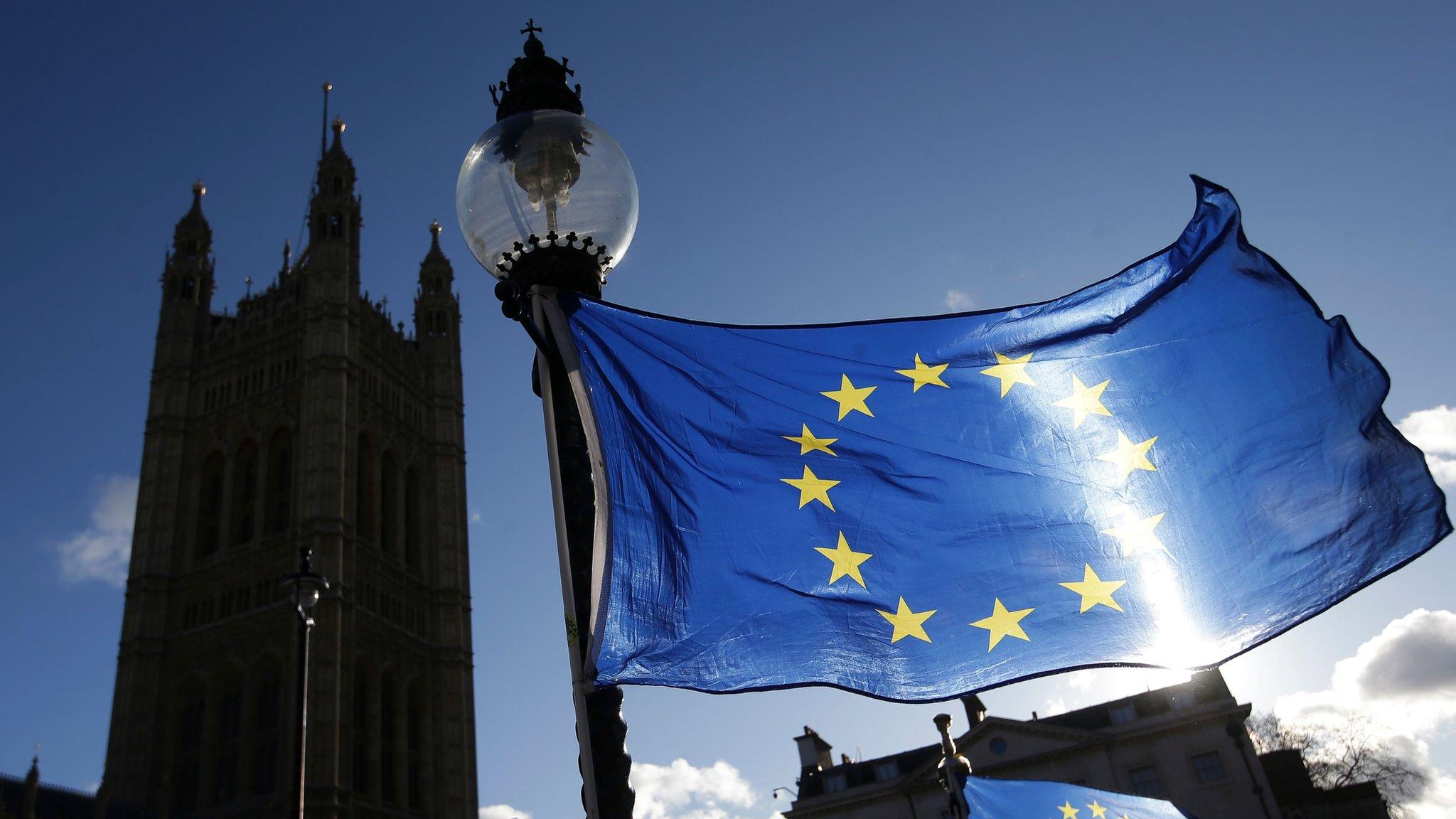Brexit: Can backstop 'fiddling' win over Tory MPs?
- Published

Listen to the prime minister this morning and you hear a leader looking for a way out.
Dozens and dozens of her MPs are set to vote against her, largely because they don't like a fiddly bit of a big package of proposals.
What should she do then? No surprise, fiddle with the fiddly bit.
What Theresa May sketched out on Thursday was the idea of allowing MPs to choose when and if they want to go into the controversial "backstop" - the insurance policy against a hard border on the island of Ireland.
You can read more about how that would work here.
Clearly, to try to get some angry Brexiteers to change their minds, the PM is trying to give a sense that they might have more of a say.
They could, as the agreement already suggests, just extend the "transition period", giving the two sides longer to come up with a free trade deal that would mean the dreaded backstop is never used.
It's not surprising that MPs would have a vote on that. But Number 10 clearly hopes it will give some grumpy MPs a sense that they will have more of a say, introducing another layer of decision-making so that the backstop can be avoided.
There are problems here though.
If all the PM is offering Brexiteers is a future choice between the backstop or extending the status quo, then that's not tempting or particularly meaningful for them.
Confused by Brexit jargon? Reality Check unpacks the basics.
All it says is: If you don't like the backstop, well, you can choose to stay longer in the EU (remember during the transition period things essentially don't change very much.)
And as a sceptical EU source points out, it's not just their decision anyway.
And it doesn't sound like she is willing to give them a more dramatic choice - extend the transition period, go into the backstop or leave without it. How could she, when it's taken two years to agree on this central part of a legal deal with Brussels?
There is another scheme being talked about too, which seeks to make the backstop more palatable if we are in it.
Number 10 is talking to MPs about whether they could give Parliament an annual vote on the backstop, to approve the arrangement or not.
Now, again, my sceptical EU source points out there is no way that the UK would have a veto on its own.
But political signalling can make a difference. And frankly at this stage, anything that could make the next week less painful for Number 10 might seem worth pursuing to them.
If it's only a fig leaf, then it won't move very many MPs.
Any compromise would emerge as an amendment from a backbencher, not in the name of the government.
But if it is more dramatic, then Brussels is not likely to tolerate it.
Fiddling around could help the prime minister cut the chances or scale of defeat next week.
But it might prove only a holding position until she has to do something more fundamental.
Right now, Number 10 is clear that they have no intention of pulling this vote.
Finding a way of making it hurt less is the task- for now.
- Published5 December 2018

- Published5 December 2018

- Published4 December 2018

